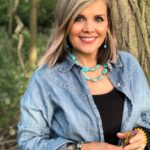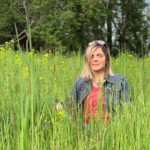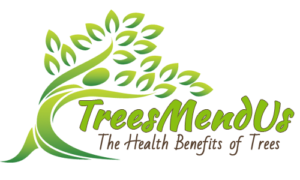 Michelle Olson, PhD, LCAT, ATR-BC, ACC/MC
Michelle Olson, PhD, LCAT, ATR-BC, ACC/MC
Founder, Executive Director www.evergreenminds.org
Verla’s website https://treesmendus.com
New book Optimize Your Heart Rate: BalanceYour Mind and Body With Green Space.
Previous book Take Back Your Outside Mindset: Live Longer, Stress Less, and Control Your Chronic Illness
Your Outside Mindset Podcast Interview Episode #34 with Michelle Olson Time line:
1:19 Michelle Olson is a social gerontologist, who started as a creative arts therapist with WWII vets who had serious mental health and dementia. Expressive arts include visual arts, music, dance and drama.
05:15 What makes the difference is the ability of people who are experiencing mental difficulties to communicate in different ways.
6:21 Michelle Olson: “When people lose the ability to talk… they can still move their bodies and use their senses — as ways to connect and feel better.”
7:19 Michelle Olson: “to do this as a family member — we sometimes make it harder than we need to make it. It is the simple things sometimes the activity might be — being together outdoors. Here we might spend time noticing the leaves or the light, the shadows, the textures….
7:38 Maybe its the smell in the air
7:49 Sometimes I do forest therapy with clients and we turn around and notice things in different directions. Eg what does this acorn feel like? Maybe you can make a nature sculpture – something that will recreate this time together.
8:47 Maybe a person does want to make a painting – then I focus on the process – maybe that product is interesting. Or maybe they want to make a poem – it might rhyme or it might not. It is the whole process of connecting that matters.
09:58 As a social gerontologist I am interested in where we live and what we do across out whole lives….how we eat, how we move, how we socialize, how we interact with the world, do we feel safe..
10:17 When I was an arts therapist that is when the light really went on…I wanted to know more about aging. In social gerontology we look at the person holistically over the course of their lives. The field of gerontology is growing, there are financial gerontologists, environmental gerontologists… we need to know all these perspectives.
14:00 We often don’t think about environment when we think of aging. United Nations just declared access to a healthy environment a human right. We don’t question why we keep patients and older people inside. Dr Allen Power says balance the risk of safety and keeping people away from natural spaces. We can ask staff – to honour these older people with dementia the option to go out everyday. Paul Falkowski PhD says It is matter of changing behaviour and involving volunteers.
24:11 Evergreen Minds Foundation – brings people together through expressive arts and green space – helps educate staff and society.
21:07 ANFT – Association of Nature and Forest Therapy certification – this shifts our mindset away from us as separate from nature to the awareness that we are all living things…connected in a web of inter-being. The philosophy shifts us away as human beings being at the centre of things.
24:11 Foundation – bring people through expressive arts and green space – help educate staff. Mission not to just do things for people with dementia. Eg. Happy hour under a tree, being together and having fun whether or we have dementia.
26:00 Take away of my journey for others. See yourself in those you serve — it changes the way care happens. When we recognize one another and see ourselves in them.
On thing that our audience – get outdoors even it is just a few minutes a day. Step outside and be still, and just notice. Just be.
Challenge the status quo — if you have a loved one in an institution, have the courage to ask “how can I get my loved one outdoors every day?” (if that is what they would like to do). We all seem to like fresh air and the feel of sunshine on our shoulders.


